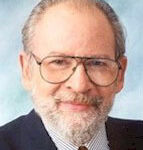Sens. Bernie Sanders and Barbara Boxer today introduced a bill to tax carbon emissions on entities such as coal mines, oil refineries, and natural gas processing points. The legislation would set a $20 tax for each ton of carbon dioxide beyond a set limit, with the tax rising 5.6 percent annually over 10 years. Affecting about 85 percent of the economy, the bill leaves out power plants, which would continue to be regulated by the Environmental Protection Agency.
In December, The Heartland Institute co-signed an open letter with 13 other conservative think tanks and advocacy groups urging Congress to oppose carbon taxes.
The following statements from energy and tax experts at The Heartland Institute – a free-market think tank – may be used for attribution. For more comments, refer to the contact information below. To book a Heartland guest on your program, please contact Director of Communications Jim Lakely at [email protected] and 312/377-4000 or (cell) 312/731-9364.
“I have been studying climate change since the mid-1970s when global cooling was in vogue as a means to grow government and stifle individual freedom. When that did not work, the focus shifted to warming with equally non-persuasive evidence.
“It is clear to any objective scientist that man’s contribution of carbon dioxide to the envelope of air surrounding our planet has no measurable effect on the Earth’s temperature, therefore any government program with its automatic costs of operation can only be an unnecessary burden on society.”
Jay Lehr
Science Director
The Heartland Institute
[email protected]
312/377-4000
“It sounds to me like a plan to move money from our left pocket to our right pocket.
“It would raise energy costs, forcing us to pay more for energy. Think of this as taking money out of our left pocket. Then the plan would refund some of the money back to us. Think of this as putting money in our right pocket. Shifting money from our left pocket to our right pocket does not leave us with more money.
“In fact, because only three-fifths of the money that was taken from our left pocket would be refunded, we’d be left with less money in our right pocket. The one-third that would not be refunded to us would go into government’s bottomless pocket.”
Steve Stanek
Research Fellow, Budget and Tax Policy
The Heartland Institute
Managing Editor
Budget & Tax News
[email protected]
312/377-4000
“Politicians like Boxer and Sanders will always pretend to be going after oil and coal companies. But the fact of the matter is that the products oil and coal companies sell to consumers (gas and electricity) are already taxed at exorbitant rates with no discernible impact on these industries.
“But knowing that the American farmer is one of the biggest consumers of fossil fuels (diesel and fertilizer), you’d think even ideologues like Boxer and Sanders could connect the dots and tell us the truth: that our grocery bill is about to go sky-high if they get their way.”
Mischa Popoff
Policy Advisor, energy and environment
The Heartland institute
[email protected]
312/377-4000
Mischa Popoff is the author of Is It Organic?
“This bill is designed to exploit an information asymmetry among voters. The hope, on the part of its sponsors, is that people will see the ‘dividend’ that is doled out to them, but not notice (or at least, not understand the source of) the higher energy prices they pay. Energy producers can be demagogued when people do notice the higher prices.
“Of course, this kind of information asymmetry is rife in politics, and is the basis of the ‘fiscal illusion,’ in which people are grateful to government and politicians for the goodies they receive, but fail to understand that they are being bribed with their own money. ‘Their own money’ could be taxes they pay, or higher prices that result from government regulation or mandates. So this is merely a new variation on a very old political tactic.”
John McAdams
Associate Professor of Political Science
Marquette University
[email protected]
312/377-4000
“Sen. Barbara Boxer’s proposed legislation, a re-working of the previously rejected cap-and-trade bill, is a fraud based on a fraud. There is zero need or justification for the reduction of so-called greenhouse gas emissions, primarily carbon dioxide, because there has been no dramatic increase in U.S. emissions. More importantly, CO2 plays no role in trapping heat in the Earth’s atmosphere. According to the U.S. Department of Energy, 97 percent of all CO2 emissions are produced and absorbed by nature.
“Of the gases that compose the atmosphere, CO2 represents a minuscule 0.038 percent. Moreover, the Earth’s average temperatures have not increased in the past 16 years. Indeed, the Earth is in a widely acknowledged cooling cycle as the result of decreased solar radiation.
“To impose restrictions and costs on CO2 emissions would further restrict the economic growth the nation needs. It suggests that Sen. Boxer would prefer to participate in the global warming hoax while remaining indifferent to the high unemployment and anemic growth challenging the nation’s economy.”
Alan Caruba
Founder, The National Anxiety Center
Policy Advisor, The Heartland Institute
[email protected]
312/377-4000
“It’s a step in the right direction. A better proposal would rebate 100 percent of the revenues. This would make it more transparent and less subject to special interest manipulation. It would also serve the goal of shifting the effective tax burden away from income and toward consumption.”
Jonathan H. Adler
Johan Verheij Memorial Professor of Law
Director, Center for Business Law & Regulation
Case Western Reserve University School of Law
[email protected]
312/377-4000
“Proposals for controls on emissions of CO2, including those for a carbon tax, are always accompanied by alarms about the magnitude of future global warming and by soothing predictions that the economic impact of the controls will not be overly destructive. “Both sets of predictions are based on models, but both sets of models have deeply flawed assumptions.
“1) For the climate change models, a scientific consensus exists that a doubling of CO2 would result in, at most, a one degree (Celsius) increase in temperature, which would be of little concern. All predictions of larger increases are based on the assumption that feedback effects from clouds and water vapor will increase temperatures further. These assumptions have no empirical basis. Instead, the empirical evidence is that feedback effects decrease any rise in temperature. In 2010, environmental lawyer/expert Jason Scott Johnston conducted a thorough review of the literature on this issue and concluded: “[W]hile climate models all presume that such feedback effects are on balance strongly positive, more and more peer-edited scientific papers seem to suggest that feedback effects may be small or even negative.”
[Citations: Richard S. Lindzen, Global Warming: How to approach the science, Seminar, Feb. 12, 2012, pp. 40-54; Jason Scott Johnston, Global Warming Advocacy Science: A Cross Examination, U of Penn, Inst for Law & Econ Research Paper No. 10-08, May 1, 2010, p. 1.]
“2) The economic models predict impacts on jobs and GDP out to tenths of a percentage point over decades. This is inherently silly, given the difficulty of predicting GDP even for next year. In addition, these models do not identify what specific energy technologies will be available to replace carbon. For example, an important analysis from the Energy Information Administration says, in the fine print, that its basic case assumes that nuclear power can be deployed on timely fashion ‘without encountering any major obstacles,’ a highly unlikely assumption, considering that environmentalists oppose nuclear power. EIA also notes that its projections beyond 2030 depend on attaining R&D breakthroughs of unknown nature. Unfortunately, breakthroughs do not come on command. Other analyses are equally vague about the technological bases of their economic projections, which makes them pretty much worthless.
[Citation: EIA, Energy Market and Economic Impacts of H.R. 2454, the American Clean Energy and Security Act of 2009, Aug. 14, 2009, Exec.Summ.]
James DeLong
VP & Senior Analyst
Convergence Law Institute
[email protected]
312/377-4000
James DeLong is working on an analysis of the carbon tax for the George C. Marshall Institute of Washington, DC.
“The carbon tax bill by Sens. Boxer and Sanders only amounts to mindless legislative and financial churn. In effect it will tax fuel producers and then use 60 percent of the revenue to partially compensate consumers for the resulting increased prices. The remaining 40 percent will undoubtedly be required for the costs of running the scheme. The producers will of course have to fully price their tax and administrative costs into their product so the compensation to end consumers will likely amount to about half of their increased costs.”
Walter Starck
Policy Advisor, Environment
The Heartland Institute
[email protected]
312/377-4000
The Heartland Institute is a 29-year-old national nonprofit organization headquartered in Chicago, Illinois. Its mission is to discover, develop, and promote free-market solutions to social and economic problems. For more information, visit our Web site or call 312/377-4000.










